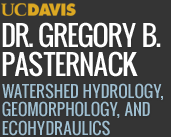Discussion Activities
Each week on Monday afternoon you will participate in a discussion section at the time you signed up for. This time will be used for an activity that will engage all students in active learning.
The information about each week's discussion is provided on this website in a unique page for each week's discussion. These pages are accessible by using the links in the table on the syllabus web page.
Discussion Readings
After watching the movie on a Wednesday and before attending the next Monday discussion period, everyone will read the same assigned content consisting of one written document. In addition, each person will be assigned to role play a stakeholder position on a topic, and for each topic there will be one other written document to read. To perform your best in discussion, at your discretion, you are welcome to look up addiitonal information on the internet to inform your understanding of your assigned stakeholder position and to prepare for the counter agruments made by those with other stakeholder positions.
Discussion Activities
Although the topic of discussion will change every week, the in-class activities will be the same, as follows:
- 7 minutes settling class down, dealing with class logitical issues, and a TA introduction to the scenario.
- 7 minutes discussion with same all people with same viewpoint discussing how to make your main points.
- 7 minutes with an opposing viewpoint, one-on-one.
- 7 minutes with an opposing viewpoint, one-on-one.
- 7 minutes with an opposing viewpoint, one-on-one.
- 7 minutes with an opposing viewpoint, one-on-one.
- 7 minutes whole-class discussion wrap up.
Discussion Attendance
Because all students will be participating in discussion, attendance is mandatory. Attendance will be taken at the outset of each discussion period. There are only 9 discussion periods in a quarter, so each student is only permitted to miss one, and that requires a legitimate excuse emailed to your teaching assistant. The only exceptions to this rule are cases of students who have a university-recognized activity, such as a sports competition, or a registered disability. Both cases require prior communication with Professor Pasternack at the outset of the quarter.


